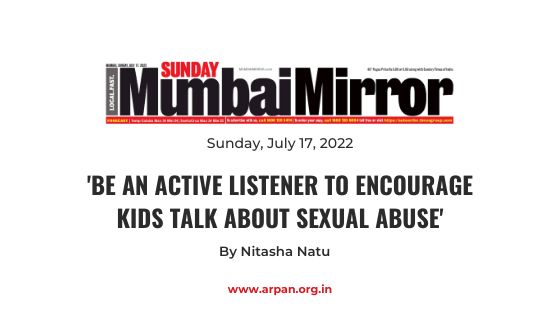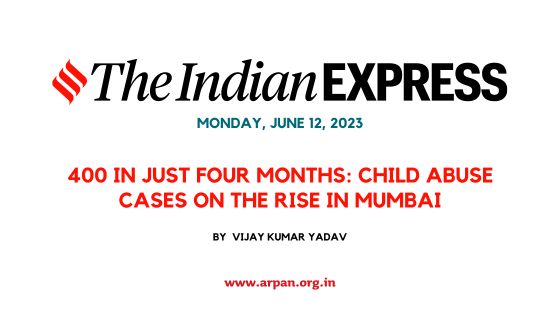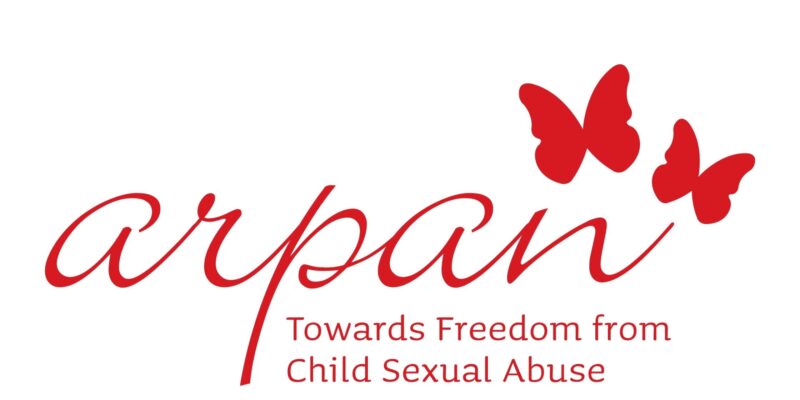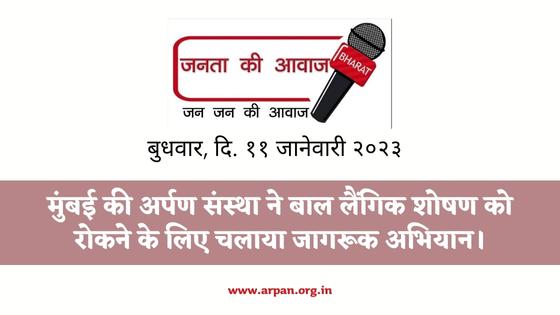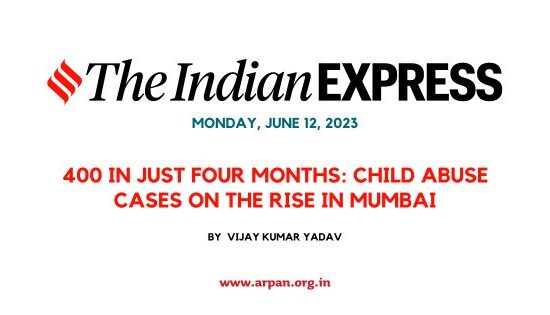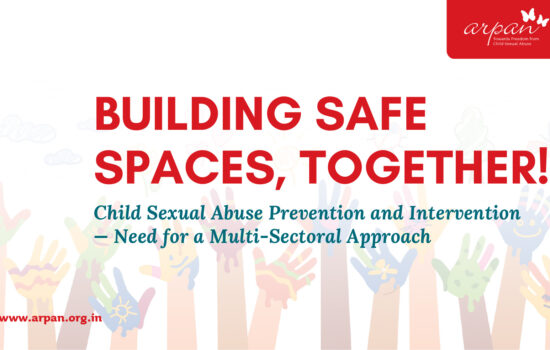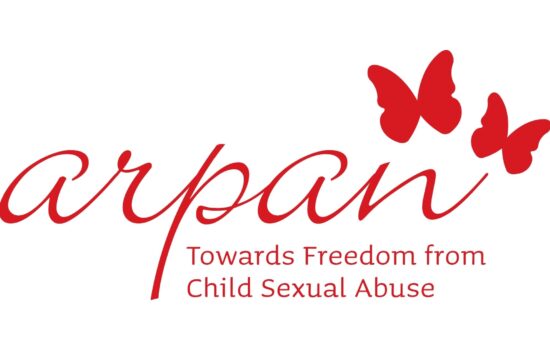The pandemic year of 2020 saw a 400% rise in cybercrimes against children as compared to the pre-Covid year 2019, according to National Crime Records Bureau (NCRB) data. Nitasha Natu speaks to Dr Manjeer Mukherjee, Senior Director with Arpan, an NGO working on child sexual abuse, on whether existing laws are strong enough to tackle child sexual abuse cases, and how should children be taught to differentiate between a safe and unsafe situation and what can parents do to help children stay cybersafe.
Q: With classes going virtual during the pandemic, children spent time on gadgets more than ever. What observations has Arpan made about the kind of online exposure that children had during this period?
A: We found that children were bombarded with pop-ups having sexual content while browsing the internet. There were also instances of strangers seeking friendship on social media platforms and sending sexual content to children. Sexual bullying via different networking apps was reported. Children also received videos having sexual content from unknown phone numbers.

Q: There have been instances of children having suicidal thoughts or hurting themselves due to cyberbullying. What can parents do to educate children on cyber safety?
A: Parents and caregivers need to have an open communication about personal safety, both online and offline. They need to teach children that while the internet is very useful, it is equally important to keep themselves safe. These are a few steps parents can take:
a) Be aware: Aware parents and caregivers can help protect as well as respond better to cyberbullying or abuse. Know more about technology, bullying and abuse, the signs and symptoms of an abusive situation, and ways to prevent, support and seek help. Be articulate about your discomfort, if any. Seek resources and help.
b) Get involved: Get involved in your child’s life as there is no substitute for your attention and supervision. Inculcate respect and empathy in children by modelling it.
c) Start young. Speak to children about online and offline abuse and personal safety from an early age. Sit with young children while they are using the internet and teach appropriate online behaviour. Teach them not to share personal information like name, age and location.
d) Set Ground Rules: Create and set guidelines on usage with mutual agreement between older children and adults
e) Listen: Talk goes both ways. A good way to encourage children to talk is to be an active listener; do not appear to judge the child or what happened. Encourage them to tell if something unsafe is happening or if someone is behaving in a way that scares them. Let them know they can tell or ask for help from you and other adults.
f) Stay calm: Speak to your child in a calm and reassuring way as fear is not an effective teaching tool, but confidence is.
Q: A few years ago, eight male students from an international school were found posting violent and homophobic messages on a WhatsApp group, and talking about sexually abusing female classmates. Is this an isolated event? What can schools do to educate children and create more awareness on gender issues?
A: This is not an isolated event. The incident is a reality check for all of us. It’s time that we take cognizance of how our adolescents are mimicking the gendered script, normalizing the rape culture, and operating from a space of lack of trust, respect and empathy in relationships that we have covertly and overtly taught them as teachers, parents, individuals and society at a large. These incidents do not just happen overnight, it’s the particular patriarchal order that produces such behaviour, reinforces and perpetuates it. It’s time that we disrupt this status quo that it is natural for boys to be aggressive, to lack impulse control, and exert power and authority over girls, it’s natural for girls to be passive and submissive. We need to help our adolescents to deconstruct negative toxic masculinity, the entire negative socialization process which reinforces and normalizes the rape culture and gender-based violence. It also flags the need to have open conversations on personal safety and sex education focusing on respecting personal boundaries, empathy and consent.
The solution to this lies in fostering an environment which enables us to break out of the stereotypes, deconstruct patriarchy and become empathetic partners and advocates of a safe and just world. School is one important setting for conducting violence prevention efforts. Education, awareness and knowledge are themselves powerful protection against violence and abuse. Schools also play a critical role to shape attitudes and norms about questioning gender stereotypes, abuse and violence.
Preventing violence can directly benefit the core aim of schools to educate children to nurture a young mind to become self-aware, self-reflective, and socially aware with relationship skills, decision-making skills, and problem-solving so that they can make meaningful and safe choices.
Q: Data shows that in a majority of cases of sexual assault registered by the Mumbai Police in the past few years, the offender was known to the victim – a family member, friend, neighbour etc. How can children be taught to differentiate between a safe and unsafe situation?
A: Just like we teach our children safety rules about crossing the road, we should also teach them about safe and unsafe touch. Children can be taught to differentiate between safe and unsafe situations and touch by teaching them personal safety messages. Personal safety education provides children with a lot of examples of safe touch as well as unsafe touch so that they can differentiate between the two. They can be introduced to the vocabulary of ‘private parts’ and taught to identify safe and unsafe touches through personal safety rules or guidelines. As caregivers, in order to ensure safety for our children, we need to initiate open communication on personal safety with children and give them skills to identify unsafe touch and situations, refuse them and seek help without any apprehension.
Q: Are existing laws strong enough to handle cases of child sexual abuse or do they need more teeth? Are they being implemented effectively?
A: POCSO (Protection of Children from Sexual Offences) is an effective Act. We need to recognize that while strengthening the judicial system might be one avenue to deter the offence from happening; one needs to work backwards in order to undo the normative framework which reinforces it. This is because sexual abuse against children does not just happen overnight.
Source : Mumbai Mirror

